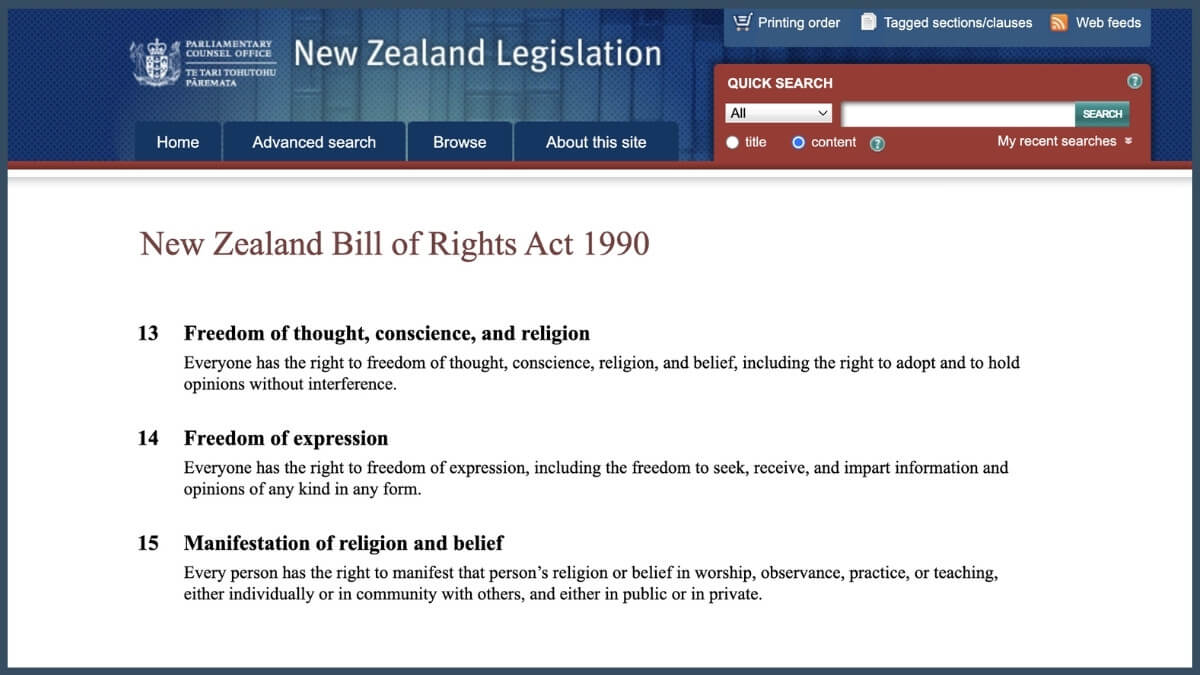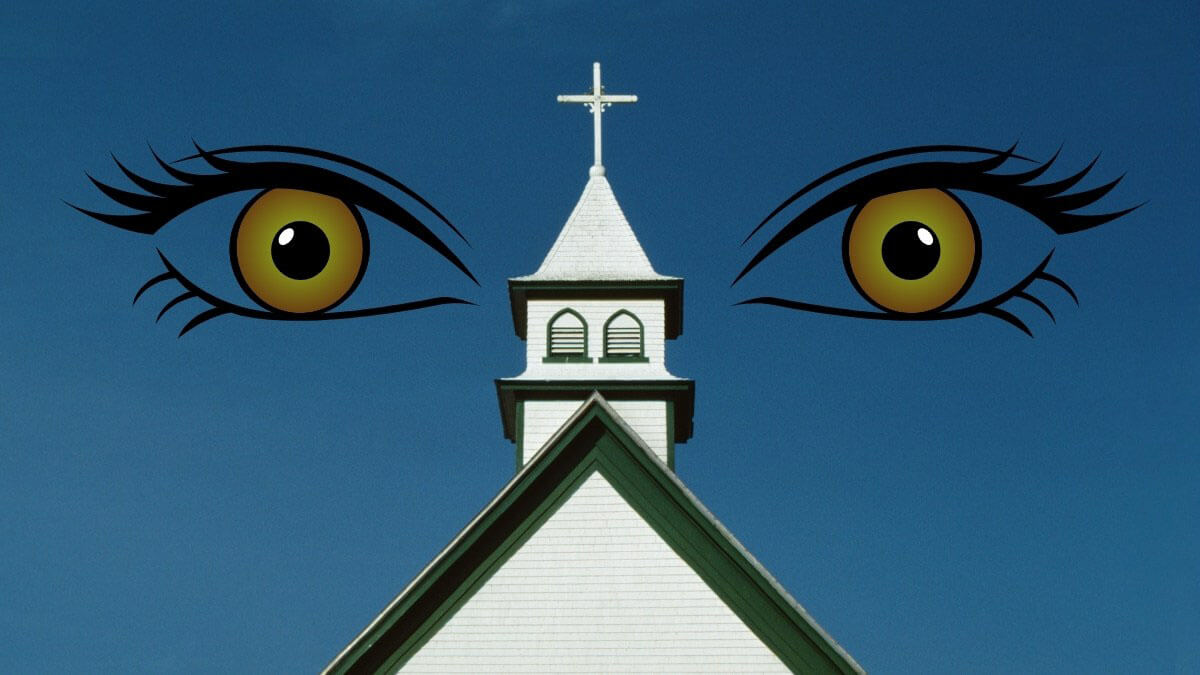Is the Government mandating ‘state approved’ beliefs at Bethlehem College?
Fuelled by a media feeding-frenzy, The Ministry of Education is threatening to ‘intervene’ into the beliefs of a much-respected Christian school, demanding Bethlehem College remove reference to traditional biblical marriage from their Statement Of Belief. This overarching Statement Of Belief includes a number of statements, all based on conventional Christian doctrine. Parents are simply asked to acknowledge that these statements summarise key beliefs of the school. Parents and students are not required to adopt these beliefs.
Bethlehem College board of trustees chairman Paul Shakes says:
“The statement was not intended to tell anyone what they were required to believe, but rather to “transparently explain what we believe”. Source: Bay of Plenty Times
The school has such a superb reputation, which is why so many parents desperately want their children to attend Bethlehem College. Parents are in no doubt their children are attending a Christian school, Bethlehem College is completely transparent in stating its Christian purpose and foundations.
“We are committed to providing Christ-centred, biblically-based education that prepares our young people for a life of effective service and leadership… Becoming part of the Bethlehem College family is about partnering with us in this exciting journey of faith.” www.beth.school.nz/about
Woke agendas, and the threat to religious freedom
Surely a Christian school has the right to express Christian beliefs? Or is religious freedom under threat here in New Zealand?
In his superb article – Is the Ministry of Education censoring a Christian school with a forked tongue? – Dr Glenn Peoples says:
“It’s a situation, I think, where a government agency is fronting what seem like reasonable grounds for their demand, while serving a more sinister purpose.” and “To call this [Government intervention] a chilling effect on Christian organisations, including schools, is to put it mildly.”
The Christian beliefs of a Christian school should not even be ‘news’ in this country, except these beliefs confront the gender ideology being pushed by many politicians, government agencies, the media, and transgender activists. Gender ideology in schools is certainly not being pushed by kiwi parents, with a new nationwide poll finding significant opposition to gender ideology being taught.
The Ministry of Education’s threatening edict, aimed at Bethlehem College, is not the first example of this Government being heavy-handed in curtailing the rights of religious groups. There’s been the recent banning of so-called ‘conversion therapy’ practices, thereby criminalising faith-based prayer and counselling for those willingly seeking help with gender dysphoria and same-sex attraction.
Dictating beliefs instead of protecting freedom of beliefs
Is our Government over-reaching, and now interfering with religious freedoms? To answer this question, we need to delve into both international and homegrown frameworks relating to religious freedoms, and then apply these into the context of the Bethlehem College furore. By the end of this article you will hopefully understand why the Government should be protecting Bethlehem College’s freedom of beliefs, instead of attempting to dictate ‘state approved’ beliefs.
Many will read this news story and immediately reach for the commonly held principle of ‘separation of church and state’. But what does that really mean? It’s not something written into New Zealand law, it comes from America, but it’s a phrase used by many kiwis.
Despite popular myth, ‘separation of church and state’ is not in the U.S. Constitution, rather it is derived from words in a letter written by President Thomas Jefferson in 1802. In his letter, Jefferson uses the words “building a wall of separation between church and state”. Jefferson penned those words in his conviction that Government should not interfere with religious belief and expression.
Religious freedom is written into the First Amendment with these words: “that Congress make no law respecting an establishment of religion or prohibiting its free exercise”. The intention was to guarantee ‘religious liberty’ – freedom to worship and practice one’s faith, freedom from state meddling, and freedom from the government establishing a ‘national’ religion.
Closer to home, The Australian Constitution declares, among other things, that the Commonwealth “shall not make any law prohibiting the free exercise of any religion”.
New Zealand’s ‘Constitution’ and Laws
New Zealand does not have one all-encompassing written constitution. Instead we have what many would term an uncodified constitution i.e. fundamental principles and precedents are found in numerous documents, Acts of Parliament, common law, conventions and treaties.
According New Zealand’s Ministry of Justice: New Zealand’s constitutional arrangements are found in a range of statutes, documents, practices, conventions and institutions. They describe and create the institutions of the State, set out the constraints on the exercise of State power, and regulate the relationship between citizens and the State. At its most basic level, constitutional arrangements aim to ensure that State actions (including legislating, governing, and enforcing and upholding the law) are legitimate and are accepted as such by the public. Because New Zealand’s constitution is not all set out in one document, and much of it is found in practices and the common law, it’s known as an ‘unwritten constitution’.
So which laws are best referenced in the context of Bethlehem College and their Statement of Belief? The most relevant laws and treaties to apply are:
- New Zealand Bill of Rights Act 1990
- The Treaty of Waitangi
-
The Education and Training Act 2020
New Zealand Bill of Rights
When discussing freedom of religion, our most notable reference would be the New Zealand Bill of Rights Act 1990. Its purpose: to affirm, protect, and promote human rights and fundamental freedoms in New Zealand.
In particular, the Act would appear to affirm and protect the rights and freedoms of Bethlehem College in sections 13-15:
- 13 – Freedom of thought, conscience, and religion
- 14 – Freedom of expression
- 15 – Manifestation of religion and belief

The Act clearly states freedom of religion and belief, including the right to both hold such beliefs but also to express them. The New Zealand Bill of Rights leaves little doubt that Bethlehem College is within its rights to retain and express religious beliefs.
What about The Treaty of Waitangi?
What does Te Tiriti o Waitangi have to say on this matter? To answer this question, we will reference the Human Rights Commission’s statement on religious diversity (first issued in May 2007, then rewritten in 2018 to reaffirm the importance of religious diversity). The HRC’s statement references the Treaty of Waitangi, as well as acknowledging Christianity’s “formative role in the development of New Zealand”.
At the signing of the Treaty of Waitangi in 1840, Governor Hobson affirmed, in response to a question from Catholic Bishop Pompallier, “the several faiths (beliefs) of England, of the Wesleyans, of Rome, and also Maori custom shall alike be protected”. This foundation creates the opportunity to reaffirm an acknowledgement of the diversity of beliefs in New Zealand.
Christianity has played and continues to play a formative role in the development of New Zealand in terms of the nation’s identity, culture, beliefs, institutions and values.
The Human Rights Act, as well as other material published by the Human Rights Commission, should also be studied.
Link to HRC website here.
The Designated Special Character School… and why this matters a lot
Bethlehem College is a State integrated school, and more specifically a Designated Special Character School i.e. having a particular ‘character’ (religious or philosophical belief) which sets it apart from ordinary state schools. For Bethlehem College, its special character can be seen in its mission: to provide a biblically-based, Christ-centred education, equipping students for effective service and leadership. You can also go to Bethlehem College’s website to read their Statement Of Special Character, and Statement Of Belief.
The Education and Training Act 2020 is the foundation for State integrated schools, and Designated Special Character Schools.
According to the Ministry of Education: State-integrated schools are former private schools that have become part of the state system. They receive some government funding to maintain and modernise the integrated school buildings.
As for special character schools, the Ministry of Education defines a Designated Special Character School as:
“State schools that teach the New Zealand Curriculum but as well as that, have developed their own set of aims, purposes and objectives to reflect their own particular values. They may have a commitment to a particular philosophy or culture.”
“Education with a special character means education within the framework of a particular or general religious or philosophical belief, and associated with observances or traditions relating to that belief.”
Types of ‘special character’ include many conventional faiths and denominations, such as Anglican, Methodist, Presbyterian, Seventh-day Adventist, Christian (non denominational), Jewish, and Muslim. Steiner and Montessori systems are also designated as ‘special character’.
It’s also worth noting that when establishing a State school as a designated character school, the Minister may also designate the school as a Kura Kaupapa Māori (children are taught primarily in Maori language).
Bethlehem College is entitled to retain its special religious character
So to summarise, Bethlehem College is a State-integrated school which teaches the New Zealand Curriculum, but also retains its own special religious character as part of its school programme.
As a Designated Special Character School, defined under the Education and Training Act 2020, Bethlehem College is entitled to retain its special religious character. The school’s Special Character is clearly articulated in its Mission, Statement Of Special Character, and Statement Of Belief.
The Ministry of Education also states:
“The only students who may enrol at a designated character school are those whose parents accept the particular character of the school.”
So not only is Bethlehem College entitled to retain its special religious character, it is also required by the Act to state this character upfront so that parents can acknowledge the school holds such beliefs. This is unequivocal. Parents and students are not required to adopt these beliefs.
Bethlehem College is so highly regarded, more often with greater student applicants than places available. Many parents clearly want their children to attend this excellent school, and they appear to have no problem accepting that the school holds Christian beliefs. No doubt these same beliefs provide the foundation for excellence.
New Zealand’s laws and treaties appear to protect the school’s right to express its religious beliefs.
So why doesn’t the Government accept this, allowing Bethlehem College to retain and express its Special Character? We should not accept any Government mandating ‘state approved’ beliefs.






